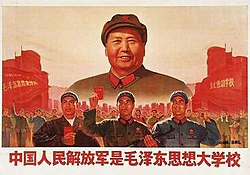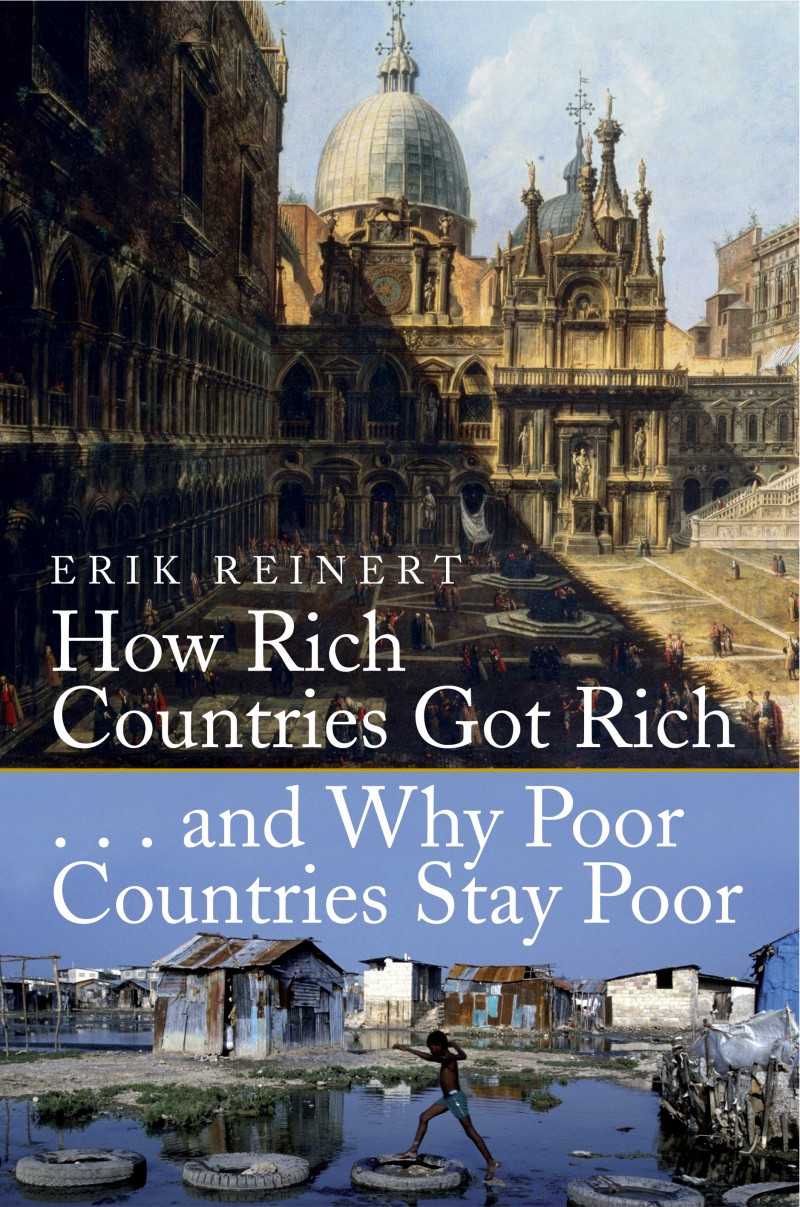
Ting Xu is Research Fellow in the Economic History Department at the LSE. She has studied in both China and the UK. Here, she shares some thoughts and feelings about the books that inspired her to explore law in the community and the global world.

My earliest memory of books is in my grandparents’ study. Both taught in a Chinese university and survived the Cultural Revolution (1966-1976). Despite the abuse and humiliation they suffered as intellectuals in that ‘Dark Age’, they never lost their love and passion for books. That ‘Revolution’ also adversely impacted the next generation. As teenagers at that time, my parents lost the opportunity to go to university. The world outside China – in particular the ‘western’ world – was little known to them: the door of China was closed; books, as an important medium to disseminate information and knowledge, were also scarce. As a child, my father used to have to rent books from other people. And this expense constituted a significant portion of the limited family budget. Without enough money, my father even exchanged his lunch box for a little book from his friend (in that period between the late 1950s and the 1960s, many Chinese people did not have enough food to eat). Needless to say, in those afternoons, his stomach was empty but he always told me that this did not matter too much because his mind was full. Like many Chinese parents, my mother and father have put their hope in their children. Although they lived modestly, they never hesitated to buy books for me and to encourage me to explore and learn about a wider world.
I obtained my undergraduate degree in law from Sun Yat-sen University in southern China. I am luckier than my grandparents and parents, as many more books are now readily available and I have more freedom to read whatever books I would like to explore. Yet I must confess that most of the books that I read for many years were at least in part about preparing for exams, and, sadly, I found most of these books quite boring. One of the few books I found interesting from my undergraduate days was a book (not included in any of the reading lists given to us by the lecturers!) that I spotted on the shelves of a bookshop for writing an essay on Chinese legal history. It is a collection of essays (Chinese title: Ji Yi Wen Cun; English translation: A Collection of Ji Yi’s Essays) by Shen Jiaben (1840-1913), a distinguished legal reformer in Qing China (1648-1911). The book was written in the period that the foundations of the Qing legal system began to be eroded through Western legal influences. Local customs came to be regarded as backward and irrational, and the legal reforms in the late Qing dynasty and Republican China (1911-1949) introduced many aspects of the German Civil Law system to China via Japan. Shen Jiaben was one of the leading scholars commissioned to develop ‘modern’ Chinese legal codes. However, he did not support for outright copying of western law without any reflections and adaptations to Chinese legal tradition and social conditions. While trying to introduce the advanced aspects of Western law to China, he tried to find important similarities between traditional (Eastern) and modern (Western) law and to bridge the gaps between the two. Shen’s work stimulated my interest in examining law from a historical and comparative perspective. And I wanted to learn more about ‘the West’.
After my undergraduate study in China, I came to LSE for my LLM and then PhD studies. My outlook was suddenly broadened, as this was the first time that I was exposed to a whole range of different theories and thoughts and it was so good to be encouraged to read broadly and to think critically. Yet, like many international students who first come to a foreign country, I experienced so many differences in language, teaching and studying methods, and, of course, a cultural shock. As a law student who has a Chinese law background and then came to grasp some theories and techniques of common law, I was particularly puzzled by some questions such as: why should Western lawyers (in particular common law lawyers) care about Chinese law (or Indian law, African law, etc.), especially if some of these scholars at least saw these laws as ‘backward’ and ‘irrational’? How do Western lawyers observe and interpret non-Western law and vice versa? How to draw links between local, national, transnational and international laws?
These are pressing questions when the world is witnessing the increasing global trend of universalising norms and practices. Indeed, globalisation is about increasing inter-connections without regard to national borders. Such inter-connections provoke borrowings, lessons and transplants in relation to all aspects of social life, including the ‘text’ of law. It is well established that the flow of transplants has often been from ‘Western’ to ‘non-Western’ countries—so much so that Western laws are often regarded as universal or neutral, and therefore easily received. Such a universalising trend emphasizes laws designed to privilege and promote the values and interests, actions and interactions that are characteristic of liberal economic societies. It is also well established that this trend overlooks the social ‘context’ of law, which leads to the ignorance of incongruities and conflicts between transplanted laws and indigenous social orders. [1]
The trend of universalising laws ignores alternative sources of power of social change such as individual and communal initiatives at the grassroots and local levels. These are not necessarily aligned with the economic and legal reforms favoured and promoted by the power of elites. Therefore such grassroots initiatives tend to run into obstacles when they seek legal recognition, and so they often linger in the grey area between the ‘legal’ and ‘illegal’ or are suppressed altogether. They are also, consequently, rather weak.
![]() Law is part of the social, or to put it another way, law is embedded in wider social life. As a postgraduate student at LSE, I was interested in exploring the interactions between law and sociology as well as other disciplines including economics, politics and anthropology. The seminal discussion of the ‘embeddedness’ position is related to Karl Polanyi’s concept of ‘embedded economy’ that economic action and interaction are always embedded in wider social life (The Great Transformation: The Political and Economic Origins of Our Time).
Law is part of the social, or to put it another way, law is embedded in wider social life. As a postgraduate student at LSE, I was interested in exploring the interactions between law and sociology as well as other disciplines including economics, politics and anthropology. The seminal discussion of the ‘embeddedness’ position is related to Karl Polanyi’s concept of ‘embedded economy’ that economic action and interaction are always embedded in wider social life (The Great Transformation: The Political and Economic Origins of Our Time).
Yet, the question for me is how to extend the idea of ‘embeddeness’ to the study of law? I find Roger Cotterrell’s study and analysis of ‘law in community’ quite helpful (Law’s Community: Legal Theory in Sociological Perspective). He sees ‘community’ as a matter of social relations based on mutual interpersonal trust. Drawing on Weber’s four types of social action (traditional, affectual, instrumentally rational and value-rational), Cotterrell’s ‘networks of relations of community’ encompass four ideal types of community: instrumental community, traditional community, community of belief, and affective community. In this approach, the unit of analysis is social relations. This method contrasts the neoliberal approach to law that treats law as economy and disembeds law from wider social life. Cotterrell stresses the relations between law and communities and the roles of law in expressing and strengthening the trust that binds different actors of communities. Different communities have different attitudes towards transplanted laws and therefore different receptions of these laws. Furthermore, the lens of community offers a useful tool for us to link local and global practices and laws ranging from the level of the individual, the communal, to the national, and the transnational across the globe. For the application and development of this approach, see Amanda Perry-Kessaris’s, Global Business, Local Law: The Indian Legal System as a Communal Resource in Foreign Investment Relations.
In general, Cotterrell’s works offer a useful perspective for looking at different laws across the globe –‘seeking similarities, while appreciating differences’ (e.g., ‘Seeking Similarity, Appreciating Difference: Comparative Law and Communities’, in A. Harding and E. örücü(eds.) Comparative Law in the 21st Century, London: Kluwer Law International, 21-34, 2002). Simon Roberts and Michael Palmer’s Dispute Processes: ADR and the Primary Forms of Decision Making, a book inspired me during my LLM studies, is an exercise in this type of this method (it shows, for example, how common law lawyers can learn from the practice of Chinese mediation). This perspective also echoes Shen Jiaben’s observation of the differences and possible connections between Eastern and Western law, and gives me some answers to the questions that puzzled me during my postgraduate study. Interestingly, in traditional Chinese philosophy, there is also a similar thought ‘qiu tong cui yi’, which could be translated into ‘seeking similarity, appreciating difference’.
 My current postdoctoral research project based at the economic history department has directed me to some studies of law and development. The project examines the divergence between the East and the West. The seminal book in this field is Ken Pomeranz’s The Great Divergence: China, Europe, and the Making of the Modern World Economy. I re-examine this big question from the cultural and institutional perspectives. And I have been inspired by several books including Joel Mokyr’s The Enlightened Economy: An Economic History of Britain 1700-1850, Erik Reinert’s How Rich Countries Got Rich…and Why Poor Countries Stay Poor. I hope that I will in due course be able to extend my study to the examination of the current convergences between the East and the West and to explore the roles played by law in such convergence.
My current postdoctoral research project based at the economic history department has directed me to some studies of law and development. The project examines the divergence between the East and the West. The seminal book in this field is Ken Pomeranz’s The Great Divergence: China, Europe, and the Making of the Modern World Economy. I re-examine this big question from the cultural and institutional perspectives. And I have been inspired by several books including Joel Mokyr’s The Enlightened Economy: An Economic History of Britain 1700-1850, Erik Reinert’s How Rich Countries Got Rich…and Why Poor Countries Stay Poor. I hope that I will in due course be able to extend my study to the examination of the current convergences between the East and the West and to explore the roles played by law in such convergence.
I wish I had been able to read more widely when I was an undergraduate law student. Law is not just located in the textbooks, cases, or statutes. Law is alive, and it is often changing. It is interesting to look at the theories underpinning legal texts and the links between such texts and perspectives to wider social practice. As law students, we think not only as lawyers but also as social scientists.
Finally, in my spare time, I like to read some legal thrillers such as John Grisham’s novels including The Associate(2009). And on my bookshelves I keep a whole collection of The Adventures of Tintin. Thanks in part to Hergé, I always have this passion to explore the unknown world.
[1] See Ting Xu, “Global Legal Transplants through the Lens of Community: Lessons for and from Chinese Property Law”, in Amanda Perry-Kessaris (ed.) Social-Legal Approaches to International Economic Law: Text, Context and Subtext.London: Routledge, 2012 (forthcoming).
——————————————————————————————-
Dr Ting Xu is Research Fellow in the Economic History Department at the London School of Economics. She will be joining Queen’s University Belfast as a lecturer in law in December 2012. Her main research interests are in the fields of law, governance and development; property law; Socio-Legal Studies; Chinese law; and comparative law. Read more reviews by Ting Xu.







3 Comments